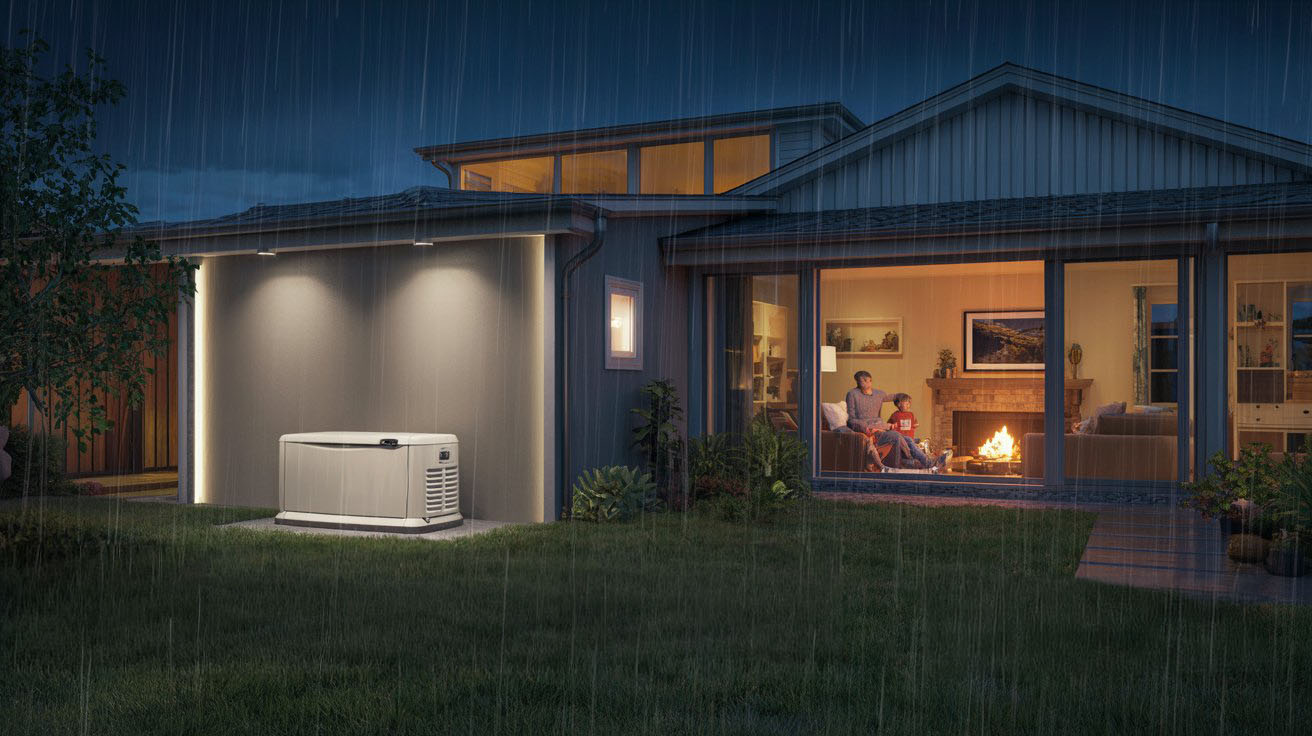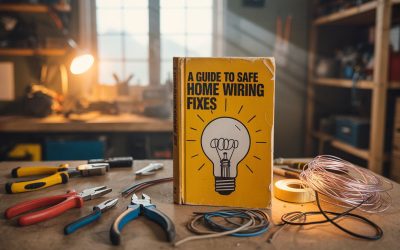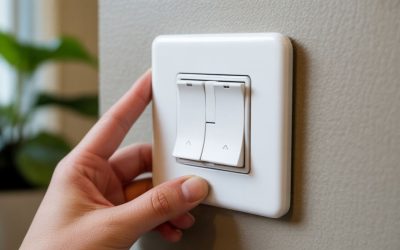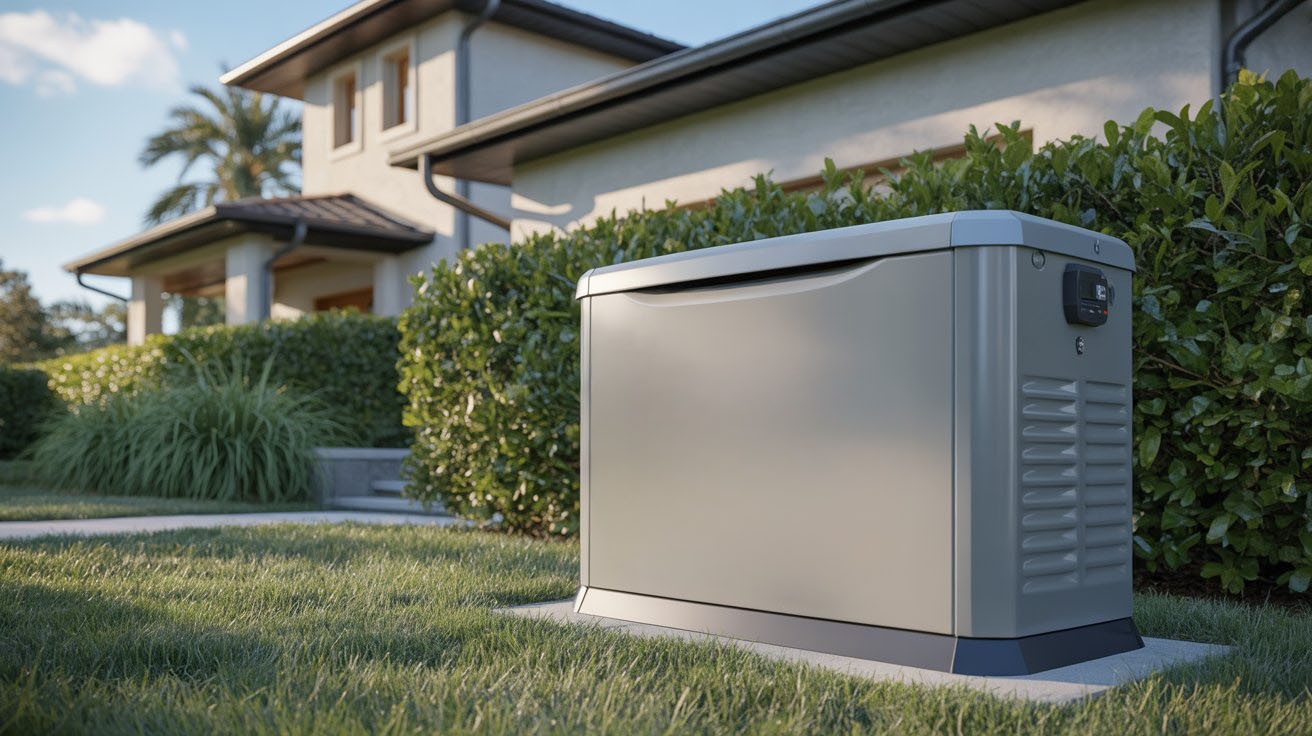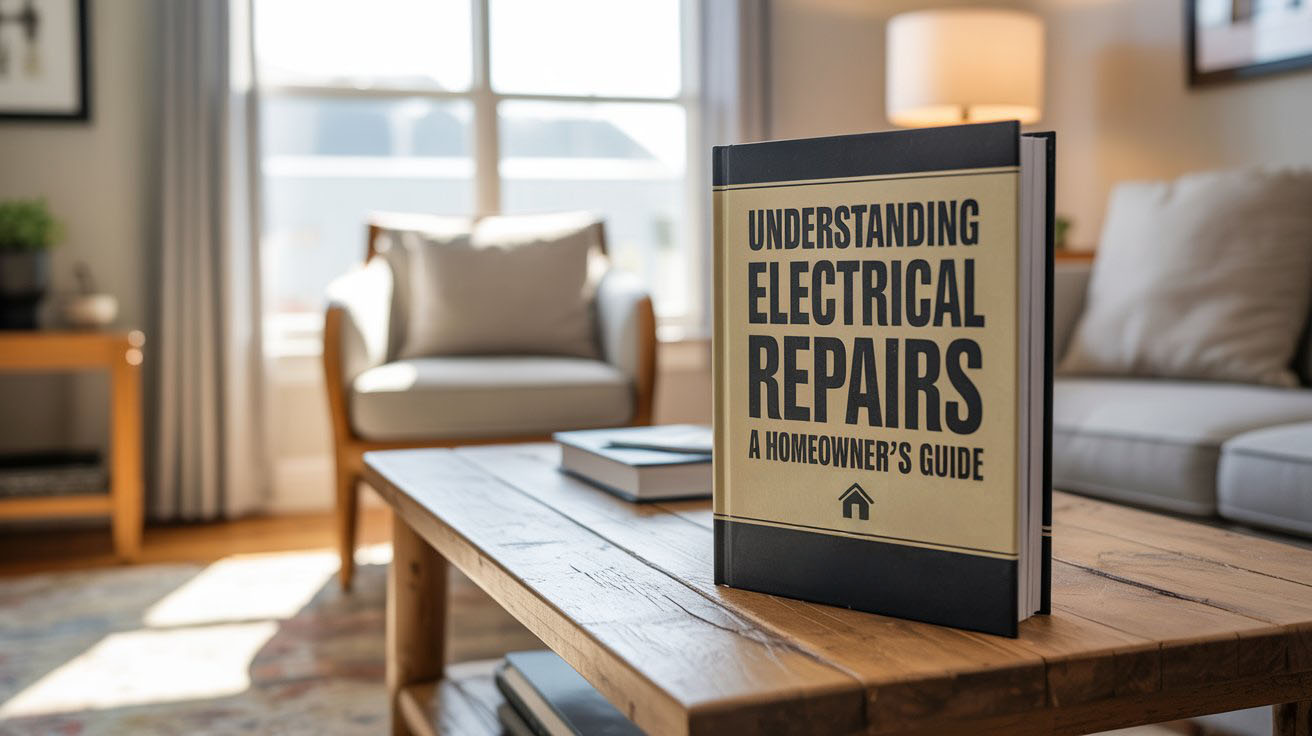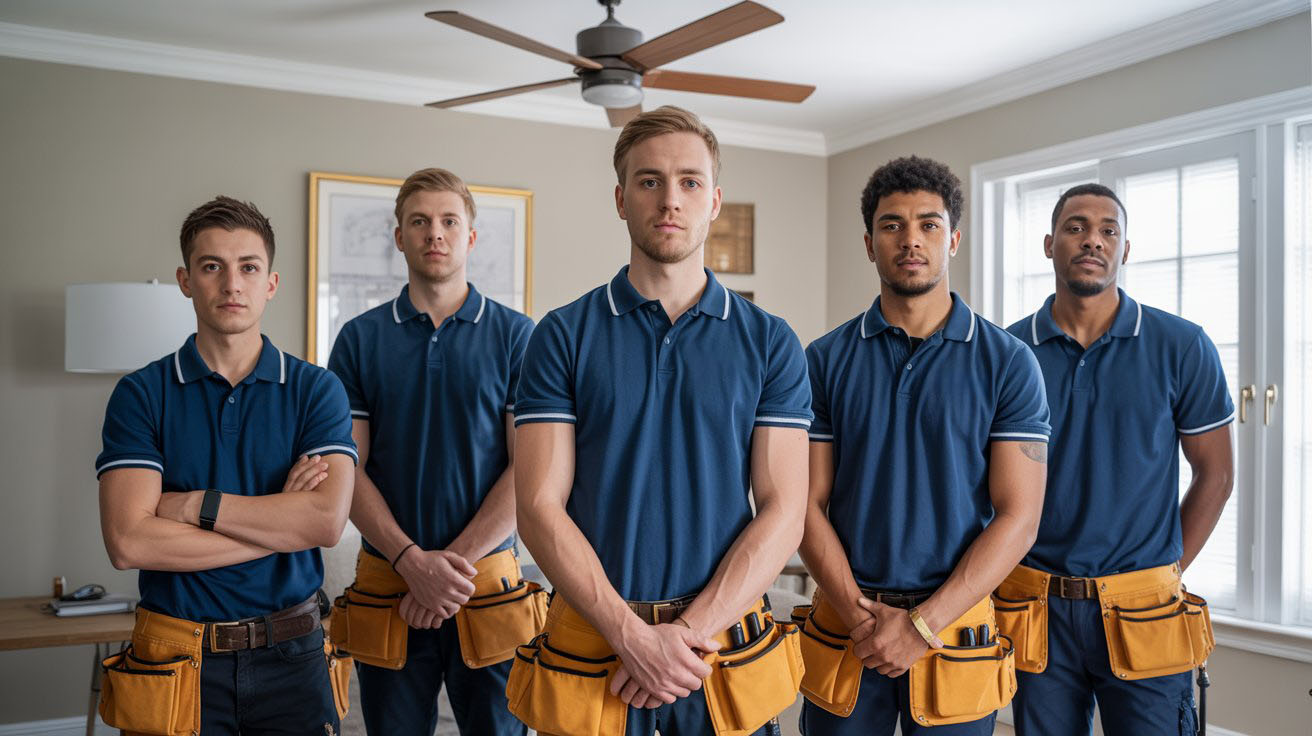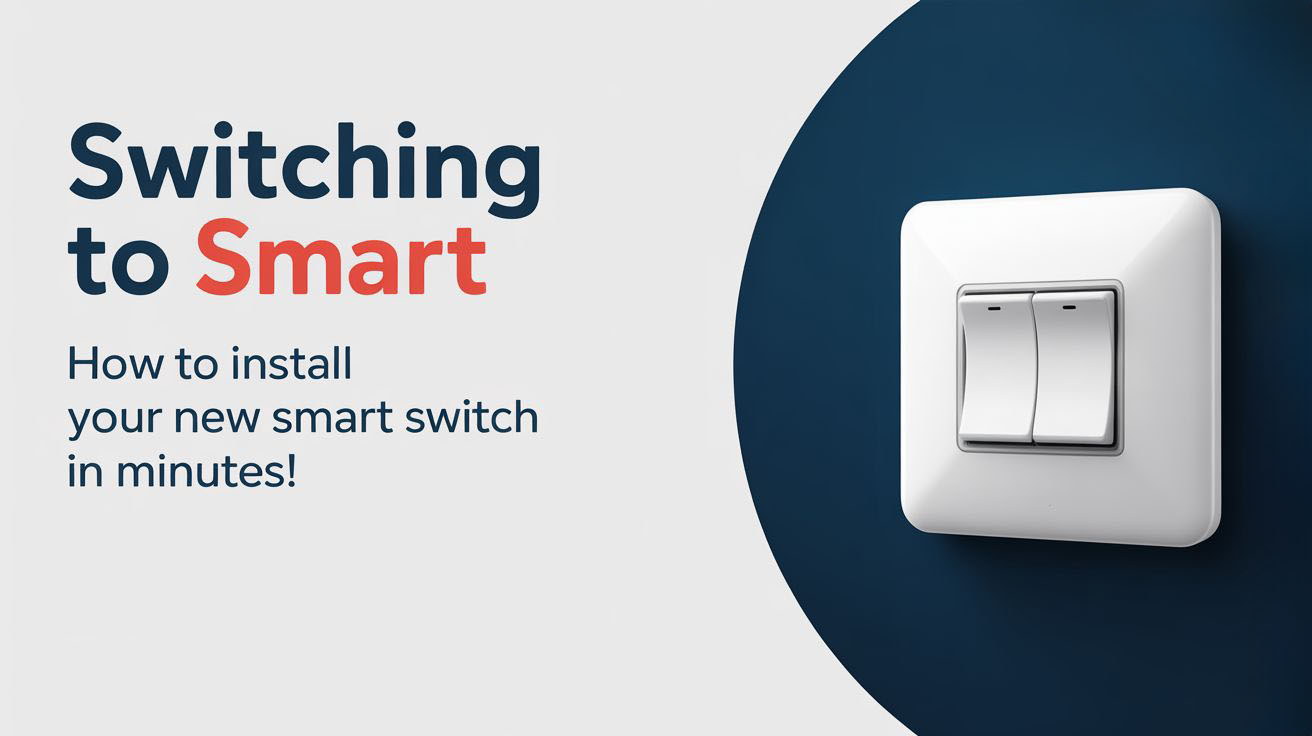Power outages can strike at any time, leaving you in the dark and disrupting your daily routine. Installing a home generator can ensure you stay connected, even during these unexpected events.
Table of Contents
- Benefits of a Home Generator
- Types of Home Generators
- Installation Process
- Maintenance Tips
- Key Takeaways
- Frequently Asked Questions
- Schedule Your Electrical Service Today
Benefits of a Home Generator
Investing in a home generator provides numerous advantages. Here are some key benefits:
- Continuous Power Supply: A home generator supplies electricity during outages. This ensures critical appliances, such as refrigerators, heating systems, and medical devices, continue to operate.
- Convenience: You won’t have to deal with the hassle of finding candles or flashlights. You can maintain your comfort and routine.
- Safety: Keeping lights on helps prevent accidents in the dark. Additionally, it provides security by keeping outside lights illuminated.
- Increased Home Value: A standby generator can increase your home’s resale value by making it more appealing to prospective buyers.
A generator can be a reliable backup to keep your household running smoothly. It provides comfort, safety, and peace of mind.
Types of Home Generators
Before selecting a generator, it’s essential to understand the different types available:
- Portable Generators: These are smaller and can be moved easily. They typically run on gasoline and can power essential appliances during an outage.
- Standby Generators: Installed permanently outside your home, these are connected to your electrical system. They automatically start when the power goes out, providing seamless energy.
- Inverter Generators: Ideal for sensitive electronics, these produce clean power and are quieter than traditional generators. They can be used for camping or as a backup power source.
Choosing the right generator depends on your specific needs and lifestyle. Consider factors like power requirements and feature preferences.
Installation Process
Installing a home generator requires careful planning and execution. Follow these steps for a successful installation:
- Assess Your Needs: Calculate the total wattage required to power essential appliances.
- Select the Right Generator: Based on your needs, choose a type and size that best suits your home.
- Hire an Electrician: Engaging a qualified electrician ensures a safe and proper installation. They can also handle necessary permits and inspections.
- Testing: Once installed, the generator should be tested to confirm functionality during an outage.
Proper installation is vital for safety and effectiveness. Engaging a professional helps avoid potential hazards.
Maintenance Tips
To keep your generator in top shape, follow these maintenance tips:
- Regular Inspections: Check for any signs of wear or damage, particularly before storm season.
- Test Monthly: Run your generator for a short period each month to ensure it starts up and runs smoothly.
- Change Oil and Filters: Change the oil and replace filters according to the manufacturer’s recommendations to keep the engine clean and efficient.
- Keep Fuel Fresh: Store fuel properly and replace it every 3-6 months to avoid deterioration.
Regular maintenance extends the lifespan of your generator and ensures you’re ready during an outage.
Key Takeaways
– A home generator provides continuous power, enhancing safety and convenience.
– Different types of generators serve various needs, from portable to standby options.
– Proper installation by a qualified electrician is essential for safety.
– Regular maintenance is key to ensuring reliable performance.
Frequently Asked Questions
What size generator do I need for my home?
The size depends on your power requirements. A professional electrician can help you calculate the necessary wattage.
How long can a generator run continuously?
Generators can typically operate for 8 to 12 hours on a full tank, but this varies by model and fuel type.
Can I use a portable generator indoors?
No, portable generators should always be used outdoors to prevent carbon monoxide poisoning.
How much does a home generator installation cost?
Costs vary based on the generator type, installation complexity, and your location. On average, installation can range from $3,000 to $8,000.
Will my insurance cover the generator?
It’s best to check with your insurance provider, as coverage can vary depending on your policy and the type of installation.
Schedule Your Electrical Service Today
Ready to stay connected during outages? Investing in a home generator not only provides peace of mind but also ensures your family remains comfortable and safe. Don’t wait for the next power outage. For professional installation and advice, contact us today!

